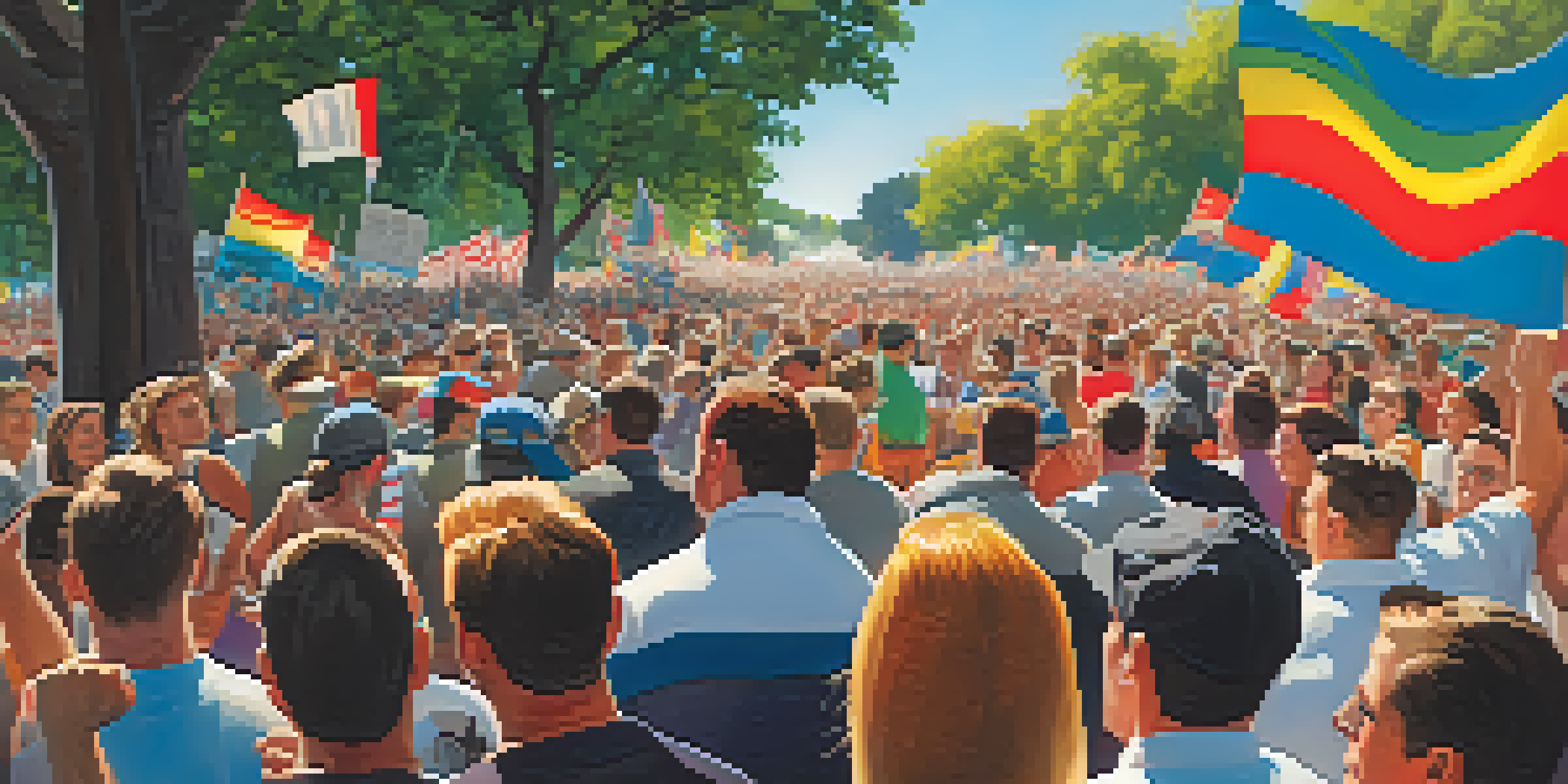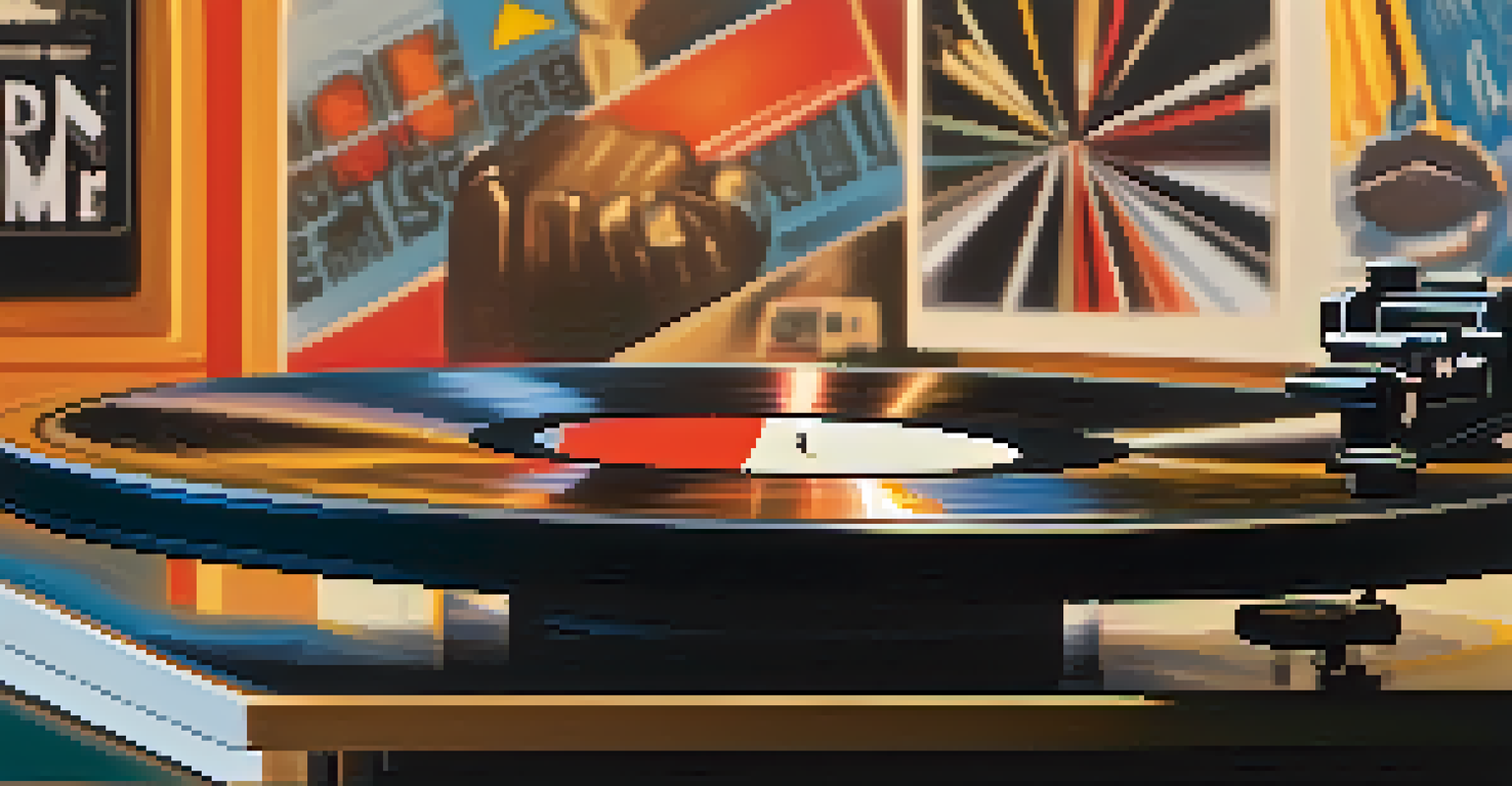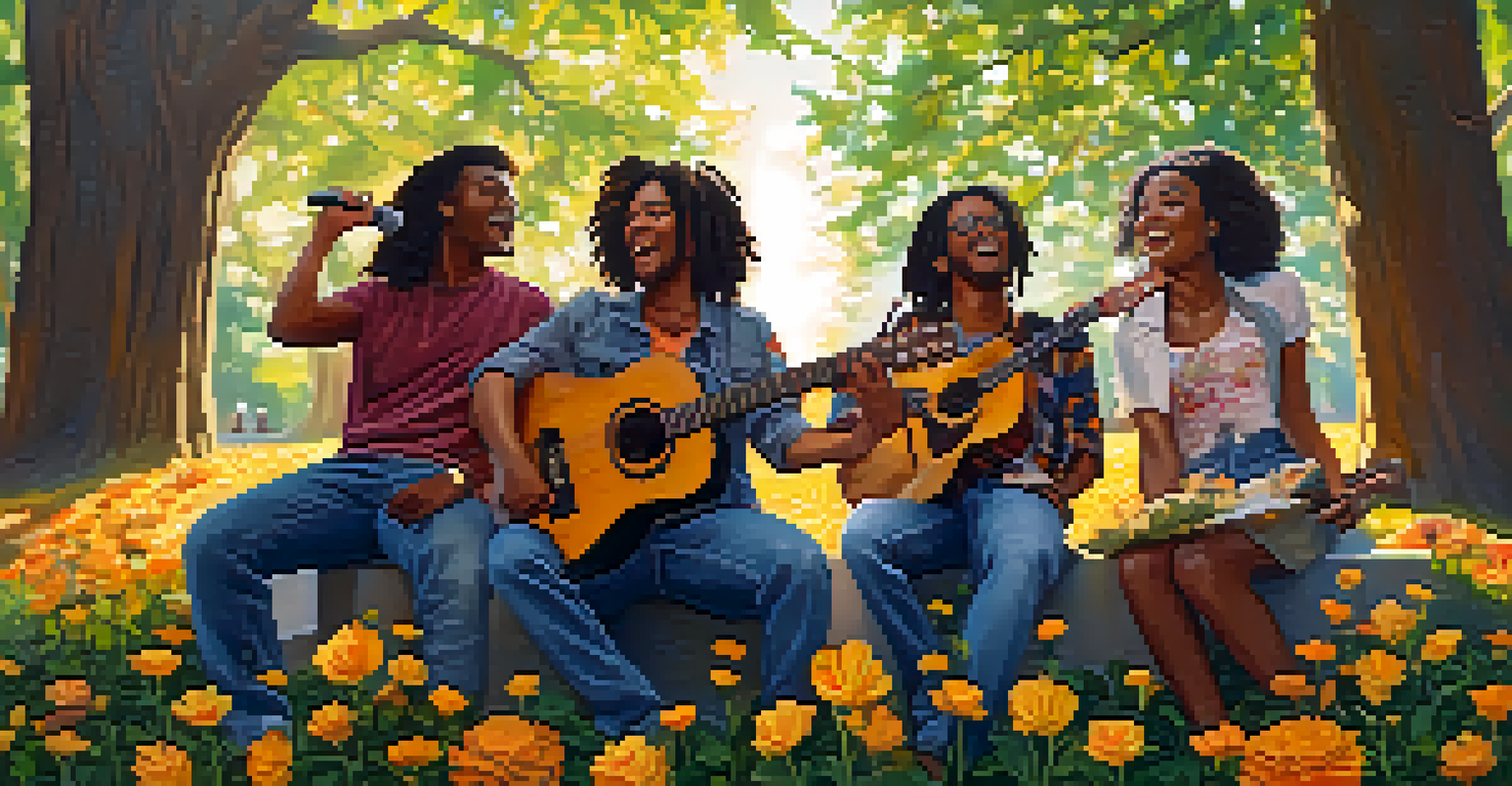The Role of Music in Political Campaigns and Social Movements

Music as a Rallying Cry in Political Campaigns
Music has always played a pivotal role in political campaigns, acting as a rallying cry that unites supporters. From anthems like 'Yes We Can' during Barack Obama's campaign to the iconic 'Eye of the Tiger' used by various candidates, songs can evoke strong emotions and create a sense of belonging. When people gather at rallies, music sets the tone, energizing the crowd and reinforcing the candidate's message.
Music can change the world because it can change people.
Moreover, music can transcend barriers. It brings together diverse groups of people who may not otherwise connect. For instance, during the civil rights movement, songs like 'We Shall Overcome' not only inspired activists but also attracted supporters from different backgrounds, creating a collective identity focused on change.
In essence, the right song at the right moment can transform a political event into a memorable experience. It can energize volunteers, persuade undecided voters, and leave a lasting impression that resonates beyond the campaign itself.
Historical Examples of Music in Social Movements
Throughout history, music has served as a powerful tool in social movements. The folk music of the 1960s, for example, was instrumental in the anti-war and civil rights movements, with artists like Bob Dylan and Joan Baez amplifying messages of peace and justice. Their songs became anthems for change, speaking to the hearts and minds of a generation seeking equality.

Another notable example is the use of music in the LGBTQ+ rights movement. Songs like 'I Will Survive' by Gloria Gaynor became symbols of resilience and empowerment, helping to foster a sense of community among those fighting for their rights. These songs provided not just entertainment but a soundtrack for struggle and hope.
Music Unites Political Campaigns
Songs create a sense of belonging and energize supporters during political rallies.
These historical instances illustrate how music can encapsulate the spirit of a movement, making complex issues more relatable. When people sing together, they share not just a melody but a vision for a better future.
The Emotional Connection of Music in Campaigns
Music has an extraordinary ability to evoke emotions, which is why it is so effective in political campaigns. The right song can inspire hope, ignite passion, and even stir feelings of nostalgia. For example, using a beloved classic can remind voters of better times, subtly influencing their feelings towards a candidate.
The power of music makes the world go round.
Additionally, music can create a sense of urgency. Campaigns often use upbeat, fast-paced songs to energize crowds and motivate action, whether it's to vote or volunteer. When a catchy tune plays, it can trigger an instinctive response that makes people feel excited and engaged.
This emotional connection is not just about entertainment; it’s a strategic tool that campaigns leverage to foster loyalty. By aligning a candidate's message with the emotions stirred by music, campaigns can create lasting impressions that resonate beyond the election.
Music as a Tool for Identity and Belonging
Music often defines group identity, especially in political contexts. Political parties and movements frequently adopt specific songs to symbolize their values and aspirations, creating a shared identity among supporters. For instance, the use of 'Born to Run' by Bruce Springsteen has become synonymous with the struggle for the American Dream.
In social movements, music can unite individuals under a common cause, fostering a sense of belonging. When people sing together, they feel part of something larger than themselves, reinforcing their commitment to the movement’s goals. This communal experience can be incredibly empowering and motivating.
Lyrics Inspire Social Movements
Powerful lyrics can articulate collective grievances, motivating individuals to join causes.
Thus, music is not just a background element; it plays a crucial role in forming and solidifying group identities, helping individuals connect with each other and their shared purpose.
The Role of Modern Technology in Music and Politics
In today’s digital age, technology has transformed how music is used in political campaigns and social movements. Social media platforms allow songs to spread like wildfire, reaching audiences far beyond traditional boundaries. For instance, a campaign can release a catchy song on TikTok, instantly engaging younger voters and creating buzz.
Streaming services have also changed the game, enabling campaigns to curate playlists that resonate with their target demographics. These playlists can evoke specific emotions and reinforce the campaign’s message, creating a multifaceted approach to voter engagement.
As technology continues to evolve, the intersection of music and politics will likely grow more dynamic. Candidates and activists can leverage innovative strategies to connect with voters, making music an even more integral part of political discourse.
The Influence of Lyrics on Political Messaging
Lyrics matter. They can convey powerful messages that resonate deeply with listeners. For instance, songs with strong political messages, such as 'Fight the Power' by Public Enemy, can articulate the frustrations and aspirations of marginalized communities. The words become a vehicle for expressing collective grievances and hopes for change.
Moreover, memorable lyrics can stick in people's minds, often becoming catchphrases that encapsulate broader movements. When lyrics resonate with an audience, they can inspire action, prompting individuals to join protests or support a cause they might not have considered before.
Tech Transforms Music in Politics
Modern technology allows music to reach wider audiences, enhancing voter engagement through innovative strategies.
Thus, the lyrical content of a song can elevate it from mere entertainment to a rallying cry for social change. It’s a reminder that words have power, and when paired with music, they can mobilize entire movements.
Future Trends: Music in Political Campaigns
Looking ahead, the role of music in political campaigns is poised to evolve further. As demographics shift and new technologies emerge, campaigns will likely explore innovative ways to integrate music into their strategies. For example, virtual concerts and live-streamed events could become commonplace, allowing candidates to reach wider audiences.
Additionally, campaigns might increasingly collaborate with artists to create original songs tailored to their messages. This could lead to a new genre of political music that directly addresses contemporary issues, making campaigns more relatable and engaging for voters.

Ultimately, as society grapples with complex challenges, the power of music will remain a vital asset in political campaigns and social movements. It serves not only to entertain but also to inspire, unite, and drive change.